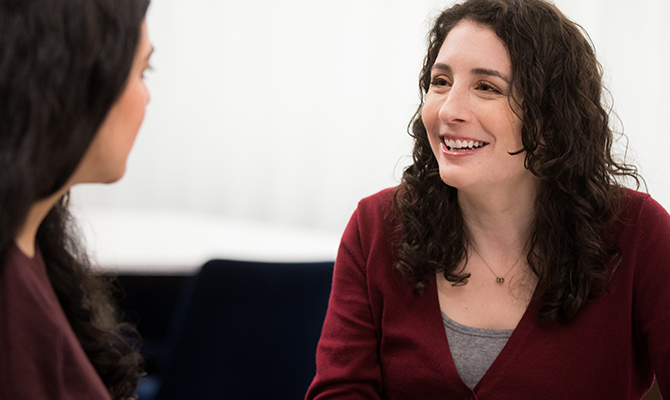
PhD student in Epidemiology, Harvard T.H. Chan School of Public Health
PhD in Epidemiology, Harvard T.H. Chan School of Public Health ’25—expected
Post-Baccalaureate Studies, University of Pennsylvania ’20
Master of Health Science in Epidemiology, Johns Hopkins Bloomberg School of Public Health ’16
Bachelor of Science in Registered Nursing, Wuhan University ’14
“Epidemiology is a core discipline in public health,” explains Manqing Liu (Post-Baccalaureate Studies ’20). “Some people have a misconception that epidemiology is just about calculating prevalence rate and the risk ratio of the disease, and reporting it using a graph as you see many times in the news during COVID-19. But it’s more than that, especially now that epidemiology is integrated with other disciplines like computer science and statistics and math.” However, as Manqing pursued a Master of Health Science in Epidemiology at Johns Hopkins, she found that her background in math and statistics was not as strong as she wanted to it be. She enrolled in Penn’s Post-Baccalaureate Studies Program to round out her mathematical education before pursuing an advanced degree.
At Penn, Manqing took courses in calculus, linear algebra, and probability and statistics—usually one or two courses a term, while she worked full time as a statistical analyst at Penn. “It was challenging, but also fulfilling,” she recalls. “My principal investigators were very understanding about my taking classes.” Manqing also took a course focused on analyzing mathematical proofs, which would become a turning point for her. “That course really helped me,” she recalls. “It’s not only about calculating stuff but also understanding the theorem and the proof behind the theorem. It helped us build math insights.” The professor of the proofs course, a senior faculty member, agreed to write Manqing a graduate school recommendation that commended her for her excellent performance on difficult exams. “I think that’s the reason I got into Harvard,” Manqing laughs. “Not the only reason, but important.”
Now a PhD student in population health sciences (PHS) with epidemiology as her field of study at Harvard, Manqing is taking epidemiology and biostatistics classes and putting her mathematical mind to work. Within the PHS doctoral program, students come from diverse educational backgrounds from anthropology to biology; like Manqing, they didn’t necessarily focus on math in their previous education. In a quantitative methods course, many new PhD students are introduced to linear algebra—familiar territory for Manqing. “That’s when I realized that those post-baccalaureate classes were really helpful for me,” she says.
In particular, her experience in proofs and theorems is helping her develop methods for tackling challenges in health sciences. She is particularly interested in how machine learning can benefit busy hospital environments. “My research focuses on developing methods on integrating predictions generated from machine learning algorithms into decision-making process of doctors,” she says. “We have huge amounts of electronic health records and using machine learning models to predict the patient outcomes and which patients are of high risk are of interests to many doctors, but how exactly can they use the predictions to help them make better decisions is still unclear because of the uncertainty of the predictions.” Currently, she is researching the role of causal inference and how doctors in busy hospitals can benefit from causal inference methods to bridge the gap between predictions and decision-making.
Manqing feels drawn to epidemiology methods research in her future, whether in an academic or industry setting. “Epidemiology methods are always updated to adapt to the everchanging challenges in public health,” she says. “It is important to develop new methods to reduce bias and help the field of epidemiology evolve.”






